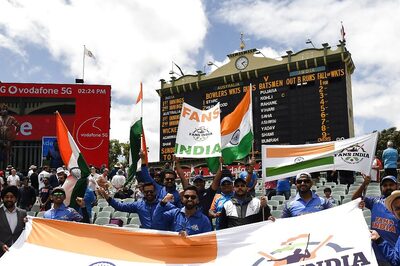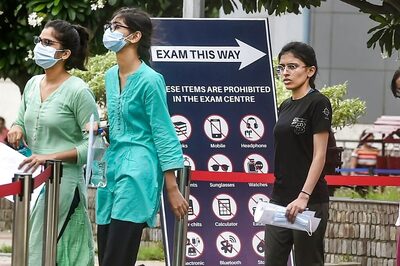
views
New Delhi: A day after the Reserve Bank of India (RBI) raised its key interest rates to check inflation, Finance Minister Pranab Mukherjee on Wednesday indicated it may not be the last increase for now.
"I don't think it is end of the tunnel. It is not like that. It does not happen (that way)", he told reporters, when asked whether RBI is nearing the end of the interest rate increase cycle.
The RBI on Tuesday hiked its key short-term lending and borrowing rates by 50 basis points to contain inflation which is nearing the double-digit mark.
The rate hike on Tuesday by the Reserve Bank, 11th since March 2010, evoked sharp reaction from the industry which said the decision would hurt investment and pull down growth.
When asked whether he was surprised by the 50 basis points increase in key interest rates by the RBI, Mukherjee said, "I cannot say it surprised me. It is substantial no doubt, but given the situation it was necessary."
The RBI's decision is likely to make auto, home and corporate loans expensive and many banks have indicated that they would increasing their lending and deposit rates in response to the hike announced by the central bank.
Admitting that inflation at 9.4 per cent in June was "reasonably high and unacceptable", Mukherjee said it was a global phenomenon and the whole world was reeling under the impact of rising prices of fuel and other commodities.
The government and the central bank are taking steps to check price rise, he said, adding "I am optimistic that measures taken by the RBI by adjusting the crucial rate will have impact and inflation will come down."
The inflation, Mukherjee said, might not come down to below 6-7 per cent by the end current financial year.
"We are fighting against inflation... Increase in repo and reverse repo by the RBI yesterday conveys a strong signal... We shall have to keep in mind that year-end inflation may not be less than 6-7 per cent," he said.
In an economy, Mukherjee further said, "you cannot have a carpet under which you can keep all these things and at the same time things will remain stable."
He said crude oil prices went up from $ 89 per barrel when the budget calculations were made to $ 107-110 currently.
He also recalled that India had lived with very high inflation, at 24 per cent in 1974. It was 18 per cent in 1990.
The Minister said that he would take up the issue of volatility in commodity and crude prices at the international fora including G-20.


















Comments
0 comment